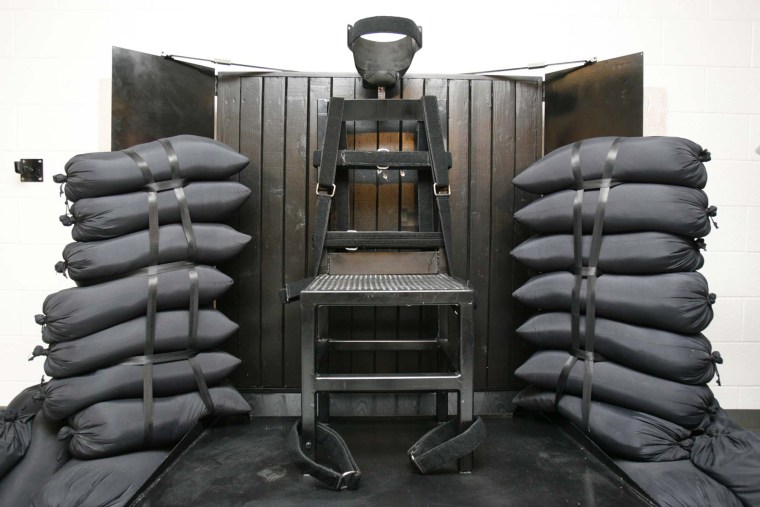Policymakers in Utah this week are
struggling mightily to approve Medicaid expansion, despite
support from Gov. Gary Herbert (R) and despite the fact that the policy would bring coverage to as many as 111,000 low-income Utahns.
But while the state is having trouble expanding access to basic medical care, it's apparently finding it quite easy to roll back the clock on executions. The
Salt Lake Tribune reported:
After less than a minute of debate, the Senate gave final passage Tuesday to a controversial bill to reinstate the firing squad as an execution method. [...] HB11 allows using a firing squad if the drug cocktail necessary for lethal injection is not available at least 30 days before a scheduled execution. Foreign manufacturers of the drugs used in lethal injection have worked to prevent their use in executions.
The reference to the brevity of the state Senate's debate was quite literal -- the bill's Republican sponsor reportedly spent 45 seconds summarizing his proposal. There were no questions and no other members felt the need to speak. The bill passed soon after.
Utah's Republican governor has not yet committed to signing the bill, which has now cleared both Utah chambers, but Herbert's office has expressed support for the proposal, at least in principle.
About a year ago, Rachel explained on the show, "Over time, we've executed people by a number of different methods in this country. And every time, we evolve out of one old method and into a new one we tell ourselves that the new one is a more humane way of doing it, a more sanitized way of doing it. It's a more certain way of killing people. And then, eventually, to use a legal term, our evolving standards of decency grow us out of our latest method of killing people and into a new one."
And that pattern of changing the way in which America kills Americans has always moved in one direction: forward. Utah is apparently bucking the trend, opening the door to moving backward.
As it turns out, Utah isn't alone. We learned a month ago that policymakers in Oklahoma are considering a proposal to impose capital punishment by
using gas chambers. (Some states, meanwhile, are moving in the opposite direction: newly elected Pennsylvania Gov. Tom Wolf (D) last month
suspended the death penalty in his state, calling for a review on how capital punishment is administered.)
Attorney General Eric Holder voiced support for a national moratorium on executions while the Supreme Court hears a legal challenge to the death penalty. The Court will hear the case following several botched executions late last year and they could determine what the future of state executions. "From my perspective, I think a moratorium until the Supreme Court made that determination would be appropriate," Holder said, according to The Hill.
